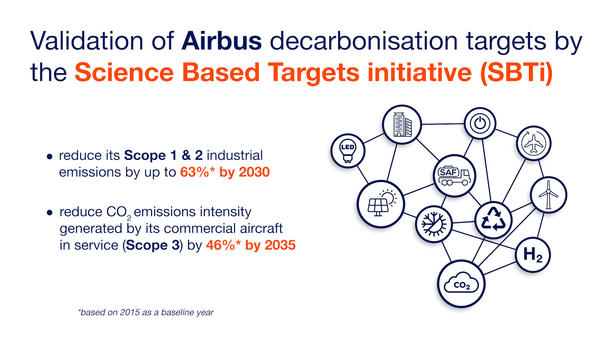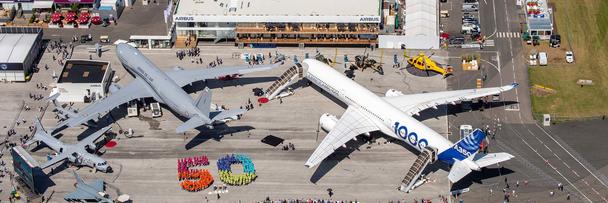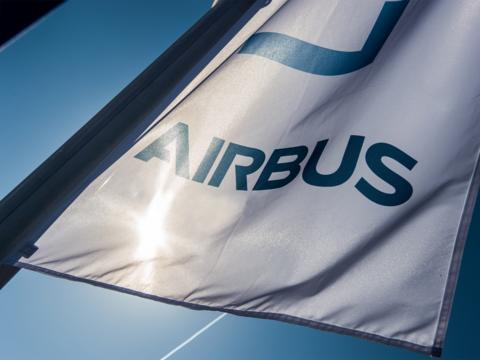Airbus receives SBTi validation for its near-term greenhouse gas emission reduction targets

Airbus has now received approval from the Science Based Targets initiative (SBTi) for its greenhouse gas emission reduction targets between now and the next 5-10 years.
These targets are based on climate science and cover the full set of its emissions: Scope 1, 2 and 3.
By now, we are all very familiar with the Paris Agreement and the long-term goals that were set in 2015 in relation to climate change. We know that globally, greenhouse gas emissions need to be substantially reduced and the global temperature increase must be limited to less than 1.5 °C if we are to avoid crossing an irreversible ‘tipping point’.
These recommendations were based on climate science, so it makes sense that we continue to use climate science to guide the targets we set and the actions we take.
In 2022, Airbus officially committed to defining science-based targets for the entire set of its emissions. We submitted these targets to the Science Based Targets initiative (SBTi), an independent organisation that helps companies to define and promote best practice in emissions reductions and targets in line with climate science.
The SBTi has independently assessed and verified these targets, and Airbus has now received approval for its near-term greenhouse gas emission reduction targets.
What are the targets Airbus has committed to?
Airbus intends to reduce its Scope 1 and Scope 2 industrial emissions by up to 63% by 2030, in line with a 1.5 °C pathway.
We already have several projects in place to help us achieve this.
For example, we are securing 100% renewable and low-carbon electricity supply to all sites in Europe by 2024. We are exploring similar opportunities in other regions such as the United States and China following this approach.
We are also replacing lighting, heating and steam systems with biomass and geothermal solutions on our sites.
And we have been improving our internal logistics by using sustainable aviation fuel (SAF) in our Beluga transport aircraft since 2019. In 2022, we also began to use SAF in our flight testing. We have also made a commitment to increase the share of SAF used in these activities progressively up to at least 30% by 2030.
Beyond this, we have committed to reducing by 46% the greenhouse gas emissions intensity generated by its commercial aircraft in service (Scope 3 - Use of Sold Product) by 2035.
There are a wide range of decarbonisation levers that will contribute to this goal, but we are focusing on making operational improvements, replacing older and less efficient aircraft and ramping up the use of SAF (supporting the wider SAF ecosystem).
Both targets are based on the 2015 year as a baseline and in line with the Paris Agreement goals.
What happens now?
The approval of our targets by the SBTi represents a milestone on our journey; another step towards being more transparent and more accountable.
Our priority is to deliver on the commitments that we have made.
At Airbus we are committed to leading the decarbonisation of the aerospace sector. The independent assessment and validation of SBTi demonstrates our willingness to define meaningful climate targets aligned with science. Together with our partners and customers, we are determined to achieve these targets and invest in the solutions that will help decarbonise our industry and ensure aviation can continue to play its precious role in society.
Guillaume Faury, Airbus CEO
About the Science Based Targets initiative (SBTi)
The SBTi is an international organisation that helps businesses to set ambitious targets for reducing emissions, that are in line with the latest climate science. It is a partnership between the Carbon Disclosure Project (CDP), the United Nations Global Compact, the World Resources Institute (WRI) and the World Wide Fund for Nature (WWF). The SBTi independently assesses and validates companies’ CO2 emissions targets, using a science-based approach and criteria.



